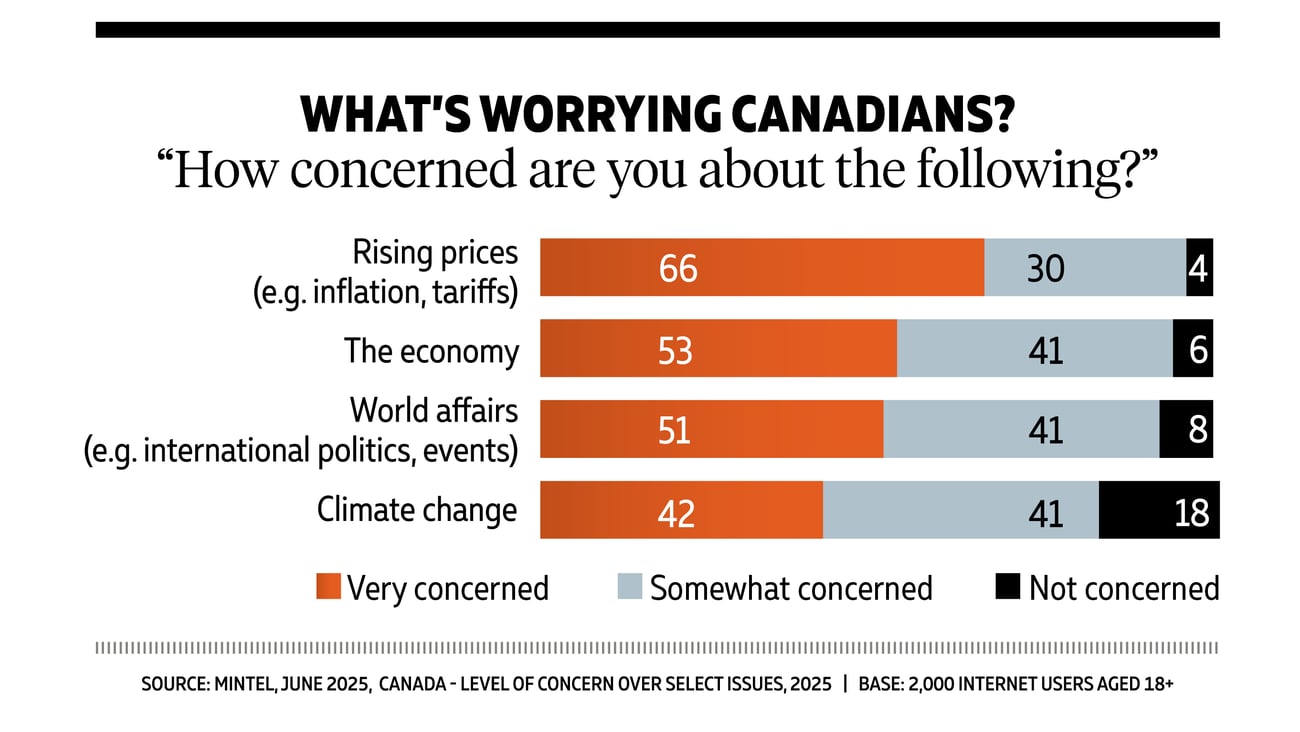Amid trade tensions, Canadian shoppers look to ‘do their part’ at the grocery store
If there’s one word that sums up 2025 to date, it’s tariffs. Tariffs from the United States equate to uncertainty and fear in Canada, but they have also spawned a wave of patriotism unlike anything experienced in recent memory. Whether the applied tariffs from the Trump administration persist remains to be seen. There is, however, greater clarity on how Canadians are responding, at least in the near term.
What Canadians are saying
Canadians’ views on the current U.S. administration’s economic policies toward Canada leave no room for ambiguity. When asked whether they believe the current Trump administration has a positive or negative impact on Canada’s economy, 61% say negative, compared to just 15% positive. Furthermore, not only do Canadians think the policies are bad for our own country, but they also think they’re harmful to the United States, indicating that most think tariffs are bad policy for consumers on both sides of the border.
READ: How grocery shoppers are standing up to the U.S.
The degree to which patriotism is driving current choices at the grocery store shouldn’t be underestimated. Nearly eight in 10 Canadians agree that “trade tensions with the United States make [them] more likely to purchase food and drink products produced in Canada.” By comparison, just over 5% actively disagree with this sentiment.
While Canadians, regardless of their demographic, support buying Canadian in the face of tariff threats, it’s important to recognize there are factors that impact the degree to which consumers are likely to prioritize this consideration, such as perceived financial well-being. The more secure one feels when it comes to their finances, the more likely they are to purchase food and drink products produced in Canada in response to current trade tensions. This difference should not be attributed to a lack of patriotism, but rather that the more financially constrained shoppers are, the less flexibility they often have in making purchase decisions that are not based on price. That said, even among those worse off financially, a clear majority still claim they are more likely to purchase Canadian goods.
Patriotism, not politics
While Canadians associate patriotism with their purchasing decisions, they prefer brands to remain apolitical, with nearly two-thirds believing companies should steer clear of politics. Although there’s a profound sense of unity among Canadians at this moment, brands should avoid veering into policy-related debates. Simply put, there’s little upside.
READ: Canadians want grocers to ditch U.S. products, promote local goods
Does this mean brands should abandon having values altogether? Certainly not. Rather, values should be conveyed in a way that is more broadly accepted. For instance, supporting local and Canadian businesses as well as environmental stewardship through sustainable packaging or responsible sourcing resonates widely. These initiatives are seen as investments in Canada and its people—valuable endeavours regardless of a brand’s origin.
Uncertainty is the only certainty
As brands around the globe grapple with uncertainty, consumers face similar challenges. However, buying Canadian is not seen just as a buying option, but for many, an act of patriotism. Amid shifting economic conditions, these actions offer Canadians a sense of contributing to a collective national effort and offer some control in a rapidly changing world.
This article was first published in Canadian Grocer’s May 2025 issue.






